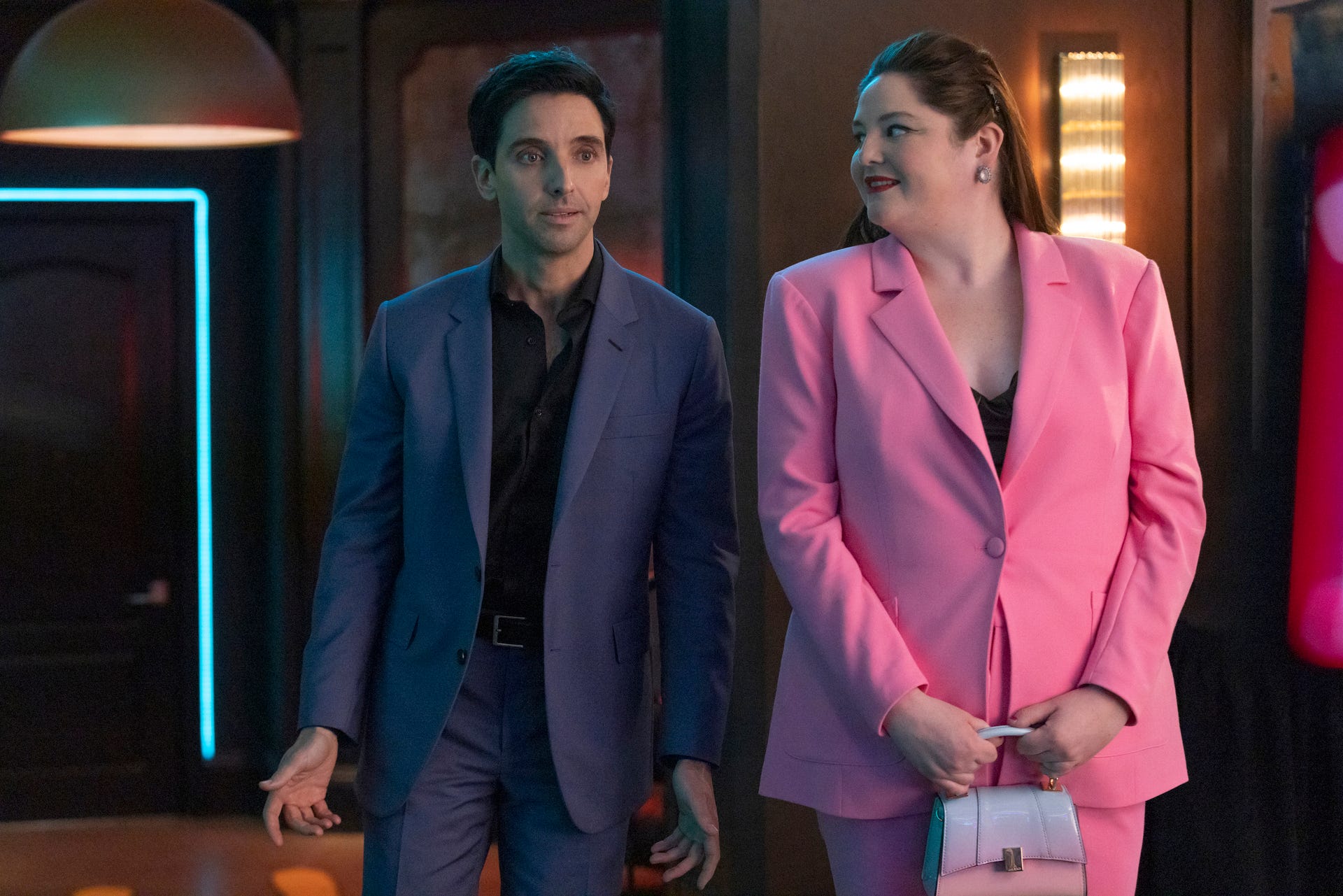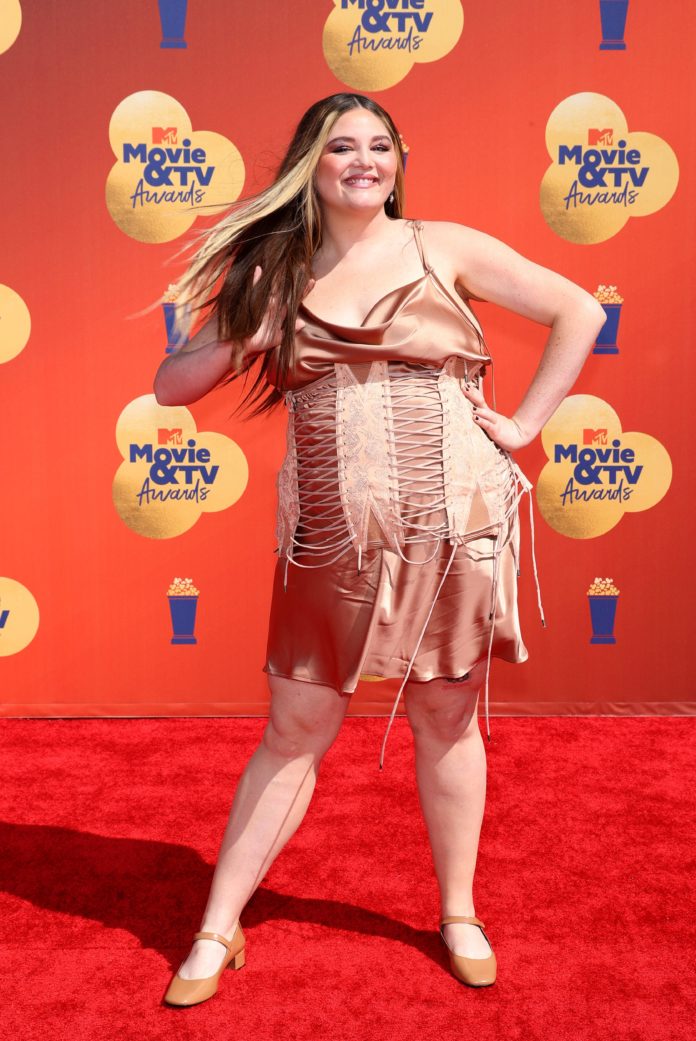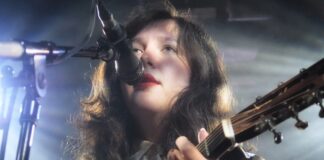This story is part of a USA TODAY series looking at the evolution of comedy and what the industry’s future looks like in a changing world.
Meg Stalter knows her brand.
The actress and comedian became the rare breakout star of the pandemic era, thanks in part to her delightfully cringey character videos on social media: a peeved hairstylist, a delusional hookup, a stammering butter-shop owner during Pride Month (“Hi, Gay!”).
“I get tagged in the craziest video you’ve ever seen of someone having a breakdown and it’ll be like, ‘This is so Meg,'” Stalter says. “My characters are people who are losing their minds but they’re trying to act like they’re not. They know their house is burning down, but they’re trying to act like everything’s fine.”
Stalter’s blissfully unhinged videos helped launch a burgeoning big- and small-screen career for the 31-year-old standup: In HBO Max’s “Hacks,” which wrapped its second season in May, she plays the world’s worst assistant Kayla at a Hollywood talent agency. She’s now developing a half-hour comedy pilot for the network called “Church Girls,” inspired by her religious upbringing, and has her first leading film role in the upcoming “Cora Bora,” playing a struggling musician trying to win her girlfriend back.
“Meg is a prime example of someone who is doing what tickles her,” says “Hacks” co-creator Paul W. Downs, who also plays Kayla’s boss Jimmy.” “She’s not doing what she thinks is cast-able or what will get her views – she’s having fun and that’s something you can always feel when you watch the best comedians.”
Stalter talks with USA TODAY about her career ambitions, the future of comedy and why she loves Che Diaz.
Question: You released videos on YouTube before you blew up on Twitter and Instagram during quarantine. What drew you to front-facing camera comedy?
Meg Stalter: I think the reason why I was doing it (during COVID) was just because it was our only option. I was so depressed about everything going on and we were all freaking out over not being able to perform live. It was just like, “OK, how can I perform when I’m alone in my New York apartment?”
From Dave Chappelle backlash to TikTok stardom, Here’s how comedy is changing in 2022
USA TODAY TV Critic Kelly Lawler breaks down some of the various ways that the genre of comedy is evolving as the world changes.
Entertain This!, USA TODAY
Q: How impromptu are your videos typically?
Stalter: Sometimes it’s planning where it’s like, “I have a funny idea I’m going to do this week.” Then other times, like the “Hi, Gay!” video, I just thought of it and started recording. A lot of times I’ll write out what I want to say, and then improv and do it totally different. But that one was really scripted because I wanted it to look like she was reading off a prompter.
Q: I’m obsessed with your impression of a Hollywood agent calling Che Diaz (a nonbinary comedian played by Sara Ramirez on HBO Max’s “And Just Like That”).
Stalter: I was really addicted to Che Diaz. After watching their famous scene where they’re making love to Miranda (Cynthia Nixon) in the kitchen, I actually DMed (Ramirez) three times saying how much I loved them, because I think Che Diaz is hot. I was like, “Hi, I love your character on the show, you’re doing a great job.” But then they didn’t see it so I deleted all of them, because you can unsend Instagram messages now.

Rich Polk, Getty Images for MTV
Q: Oh my god. We need to get you on the next season.
Stalter: I would love to play a love interest of Che Diaz. Maybe a sidepiece or something.
Q: In Season 2 of “Hacks,” we got to see a different side of Kayla that’s more thoughtful and determined while still completely outrageous. How was it showing that evolution?
Stalter: It was really exciting to play some sweeter scenes. The sweet stuff makes the wacky, weird stuff even funnier, and just makes her more of a whole person. I think she really loves Jimmy and he loves her, so it’s fun to see their relationship progress because they’ve been so psychotic to each other.
Q: What does the future of comedy look like to you? Are there changes happening that you feel inspired by?
Stalter: There really aren’t any rules. When I started standup, I was trying to fit into this structure of, “You’re telling a joke and if you want to do a character, you have to set it up like this.” But you really need to do what you think is funny on stage. People want to laugh and they also want to see people being earnest. And I think that’s what’s happening now – people are being vulnerable in comedy. My stuff on stage is always this persona, but it also has this bigger message of being true to yourself.

Karen Ballard/HBO Max
Q: Between “Hacks,” “Cora Bora” and “Church Girls,” how important is it for you to surround yourself with other queer creatives and make queerness part of your work?
Stalter: Making “Cora Bora” with this team of queer people has been career-changing. The story is so beautiful. It’s more serious than anything I’ve ever done, but it’s also so funny and sweet.
And then with “Church Girls,” I feel like it’s really important to me as somebody who believes in and loves God – and also is a queer person – to show people that just because you’re queer doesn’t mean God and being connected to the universe is not for you. The show is so important for me to be able to laugh at the funny things about church, but then to tell a bigger message of (self-love). Growing up, I never felt more connected to God than when I was like, “Oh, I’m bi and I can be myself.”
So I think the projects I’m working on are a little more earnest than what I’ve shown so far online, and I’m really excited for people to see that side. It’s really important to make people laugh, but to love and take care of people means more to me than ever telling another joke.
Published
1:16 pm UTC Aug. 2, 2022
Updated
1:13 pm UTC Aug. 2, 2022








